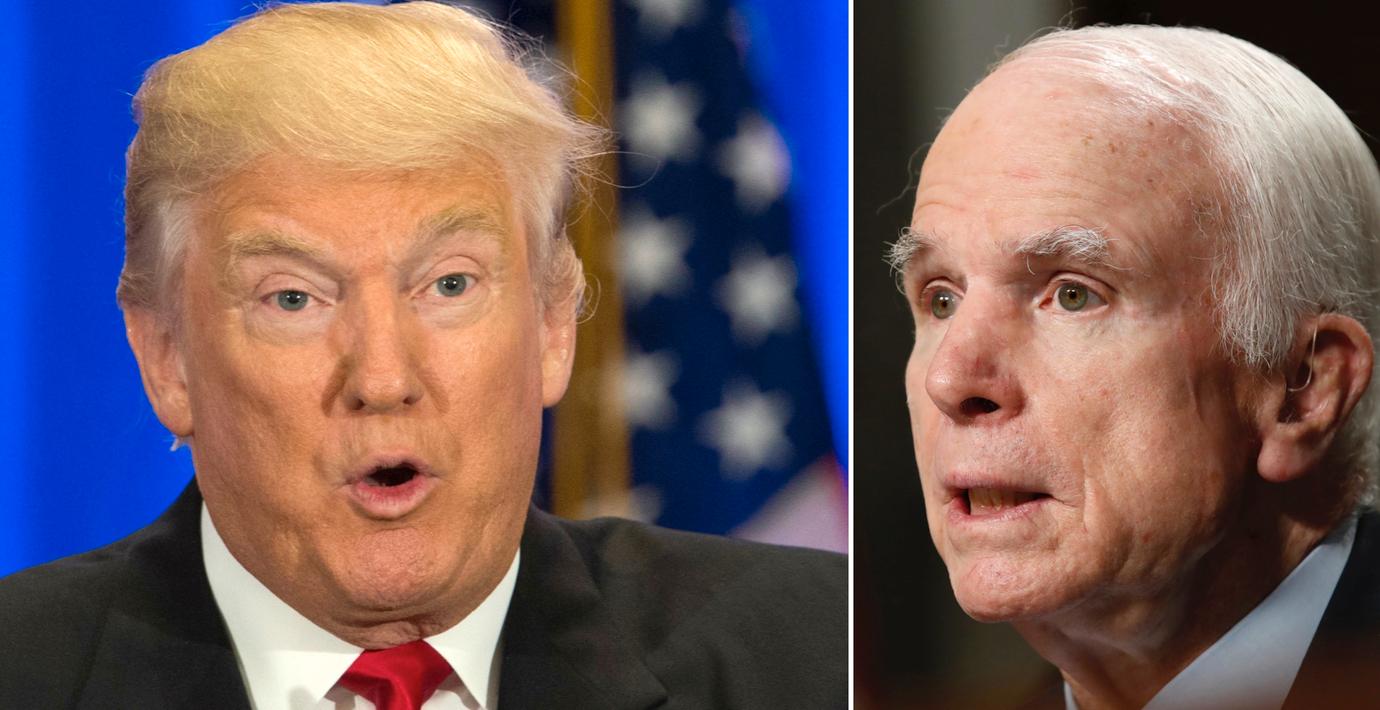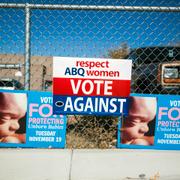
”Trumpcare” i fara – efter McCains operation
Den republikanske senatorn John McCain har opererat bort en blodpropp och måste återhämta sig. Det gör att omröstningen om Donald Trumps vårdreform ”Trumpcare” skjuts på framtiden, skriver New York Times. Republikanernas ledare i senaten, Mitch McConnell, säger att man utan McCain saknar de röster som krävs för att få igenom förslaget.
Trumps lagförslag ”Better care act”, ett av hans stora vallöften, är i fara även av andra skäl. Mellan åtta och tio republikanska senatorer har ”allvarliga betänkligheter” kring förslaget, säger den republikanska senatorn Susan Collins. Eftersom Republikanerna har 52 av 100 senatorer har partiet bara råd att förlora två röster.
bakgrund
American Health Care Act of 2017
Wikipedia (en)
The American Health Care Act of 2017 (H.R. 1628) (renamed in the draft Senate versions as the Better Care Reconciliation Act of 2017), referred to by the acronyms AHCA or BCRA, is a United States Congress bill to repeal the Patient Protection and Affordable Care Act (ACA). It is based on a plan first publicly released by House Republicans on March 6, 2017, and the first part of what its proponents say is a three-phase plan to repeal the act.
The AHCA is presented as a budget reconciliation bill that is part of the 2017 federal budget process; if this status is upheld by the Senate Parliamentarian, then no Senate filibuster will be permitted and passage of the bill in the Senate will require only a simple majority of votes. It would repeal the parts of the Affordable Care Act within the scope of the federal budget, including provisions contained within the Internal Revenue Code such as the "individual mandates" (in IRC § 205), employer mandates (in IRC § 206) and various taxes (IRC § 201 et. seq.), and also modifications to the federal Medicaid program (in Sections 111-116 and 121).
The nonpartisan Congressional Budget Office projects that the AHCA would increase the number of uninsured people by 23 million over 10 years, but would decrease the federal budget deficit by $119 billion over the same period (about 1%), mainly by cutting Medicaid coverage for lower income Americans. Both the House AHCA bill and Senate BCRA bill would cut taxes largely for wealthy Americans. If enacted, insurance premiums are projected to decrease for younger, healthier, and wealthier people, while older and poorer people would likely see their premiums increase.
On May 4, 2017, the United States House of Representatives voted to pass the American Health Care Act (and thereby repeal most of the Affordable Care Act) by a narrow margin of 217 to 213, sending the bill to the Senate for deliberation. Senate Republicans approached the AHCA with an unprecedented level of secrecy; a group of 13 Republican Senators drafted the Senate's substitute version in private, raising bipartisan concerns about a lack of transparency.
On June 22, 2017, the Senate Budget Committee released a discussion draft for an amended version of H.R. 1628 with the new short title of Better Care Reconciliation Act of 2017.
Omni är politiskt obundna och oberoende. Vi strävar efter att ge fler perspektiv på nyheterna. Har du frågor eller synpunkter kring vår rapportering? Kontakta redaktionen



